It started with a local TikTok video. Responding to a call to "Tell me you're Jewish without telling me you're Jewish," a Quebec TikToker says, "I'm not Jewish but I'd like to adopt one. I even made a bed so they can feel at home." The camera follows him to the so-called bed: his oven.
Editor's Choice: Thousands Took To Montreal Streets To Protest Quebec's COVID-19 Measures On Saturday
That's why Lauren Lieberman and Ada Yakobi are using their own social media platforms to launch a viral, multi-pronged campaign that calls on TikTok — and its users — to do better.
Is there really that much anti-Semitic content on TikTok?
Lieberman said she convinced the Quebecer who posted the video to remove it and the SPVM confirmed that police were investigating — but it was only the tip of the iceberg.
After her post about the video went viral — garnering over 13,000 likes and 500,000 views — she said people began sending her the anti-Semitic content they encountered on social media. She said she gets upwards of 10 messages a day.
She added that as she entered "the space," similar videos began popping up on her TikTok feed due to its algorithm.
"As I continued, I saw more and more heartbreaking videos [...] They're belittling and making a mockery out of [one of] the biggest mass murder[s] in the world," said Lieberman, who's the granddaughter of Holocaust survivors and who has visited the sites of former concentration camps.
"I saw these things with my own eyes. I walked through the camp. I saw the gas chambers."
Lieberman has started sharing the anti-Semitic content she receives on Instagram in order to raise awareness.
As an example, Lieberman showed MTL Blog a TikTok titled "pov: when you walk into the shower in 1940." In it, a man enters a room and looks around suspiciously as a sound from the game Minecraft plays — this sound indicates points players receive when deaths occur.
The comments section contains numerous Holocaust jokes. At the time this was published, the video had been up for one week.
"The problem is TikTok is shaping the minds of the younger generation," Lieberman said.
How has TikTok responded?
A TikTok spokesperson sent MTL Blog this statement:
"There is no place for antisemitism on our platform or off it. TikTok's mission is to inspire creativity and bring joy and we do not tolerate content that promotes hateful behaviour. We are committed to promoting a safe community environment and remove content that violates our Community Guidelines."
TikTok's Community Guidelines ask users not to post, upload, stream or share "hateful content related to an individual or group," and it specifically condemns attacks based on ethnicity.
According to TikTok's 2020 transparency report, 93.5% of videos that violated community guidelines were removed within 24 hours of being posted — and 92.4% were removed before a user reported them.
TikTok also launched a new tool that allows creators to approve and filter all comments.
But Lieberman told us these measures aren't working effectively enough.
"So many people reported these videos [that] never got taken down," she said.
"It takes months sometimes to get them off."
What more can be done?
Lieberman said she wants TikTok to explicitly add "no anti-Semitism" and "no Holocaust jokes" to its guidelines.
Yakobi, who works as an account manager at an IT company, said she's well-versed in the tools tech companies can invest in to quickly flag and remove hateful content, such as "digital fingerprinting."
Both women said they believe the reason for this influx of anti-Semitic content is a lack of education.
"[If] one TikToker posted it... the rest have to post it," Lieberman said.
"Because of the lack of education, it's easy to jump on [to trends]. I guarantee you maybe half of the people that are posting don't even know what happened in the Holocaust," Yakobi added.
The women are working to dilute anti-Semitic content with educational content.
Lieberman partnered with The Foundation for Genocide Education to interview a Holocaust survivor on Instagram live, which included his reaction to the initial TikTok video.
The women also started a "TAKE A STAND AGAINST ANTISEMITISM" room on Clubhouse where they plan to hold weekly events, including panel discussions and Q&As — and everyone is welcome, especially non-Jewish people looking to learn.
"Soon, there are going to be no more Holocaust survivors living [...] And history repeats itself," Lieberman said.
"We have to speak for those who can speak anymore. For those who never had the chance to speak because they were murdered in the Holocaust."
Yakobi continued, "And one of the biggest weapons right now is the digital world. It can be used for the greater good or it can be used for [the opposite]."
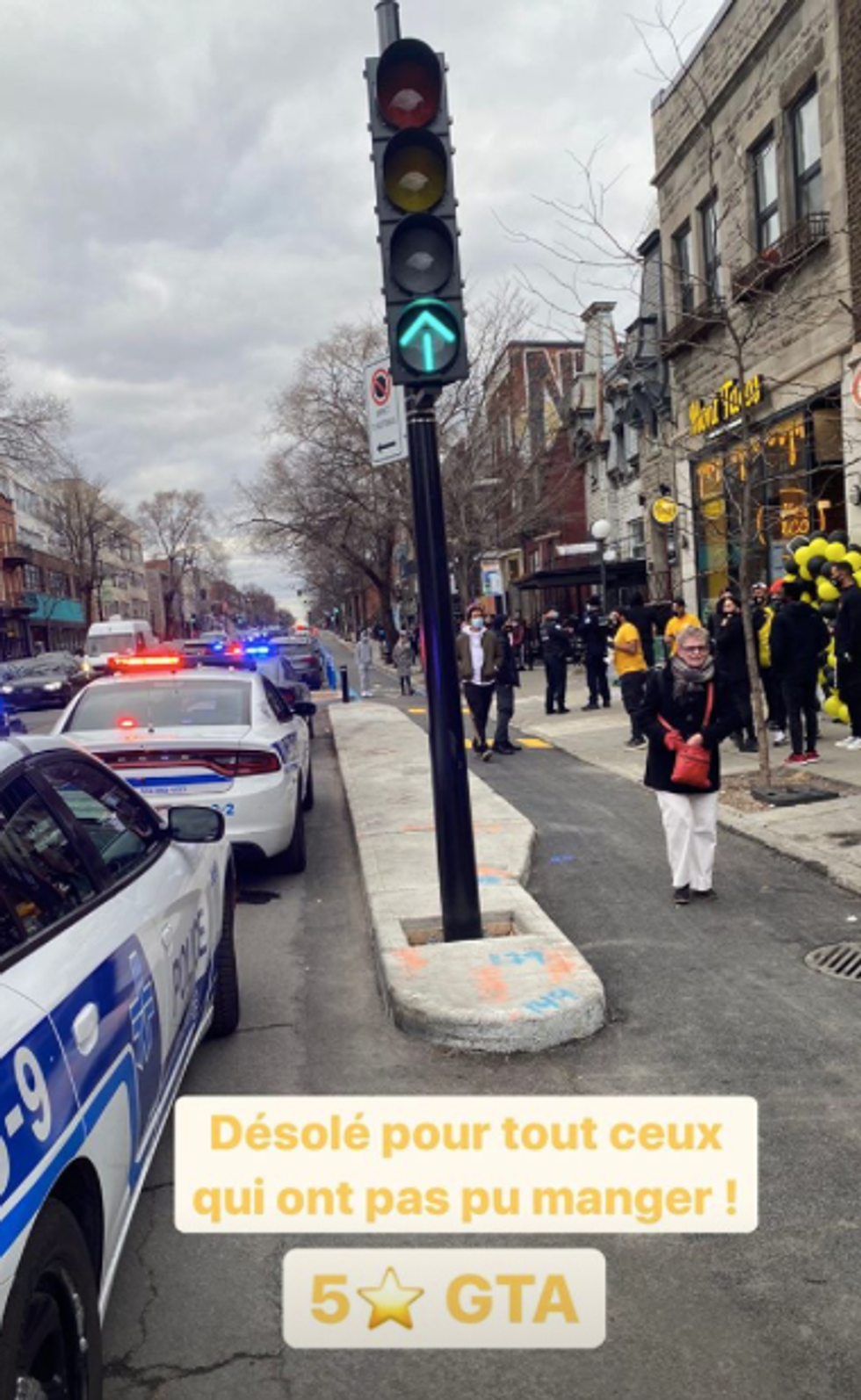
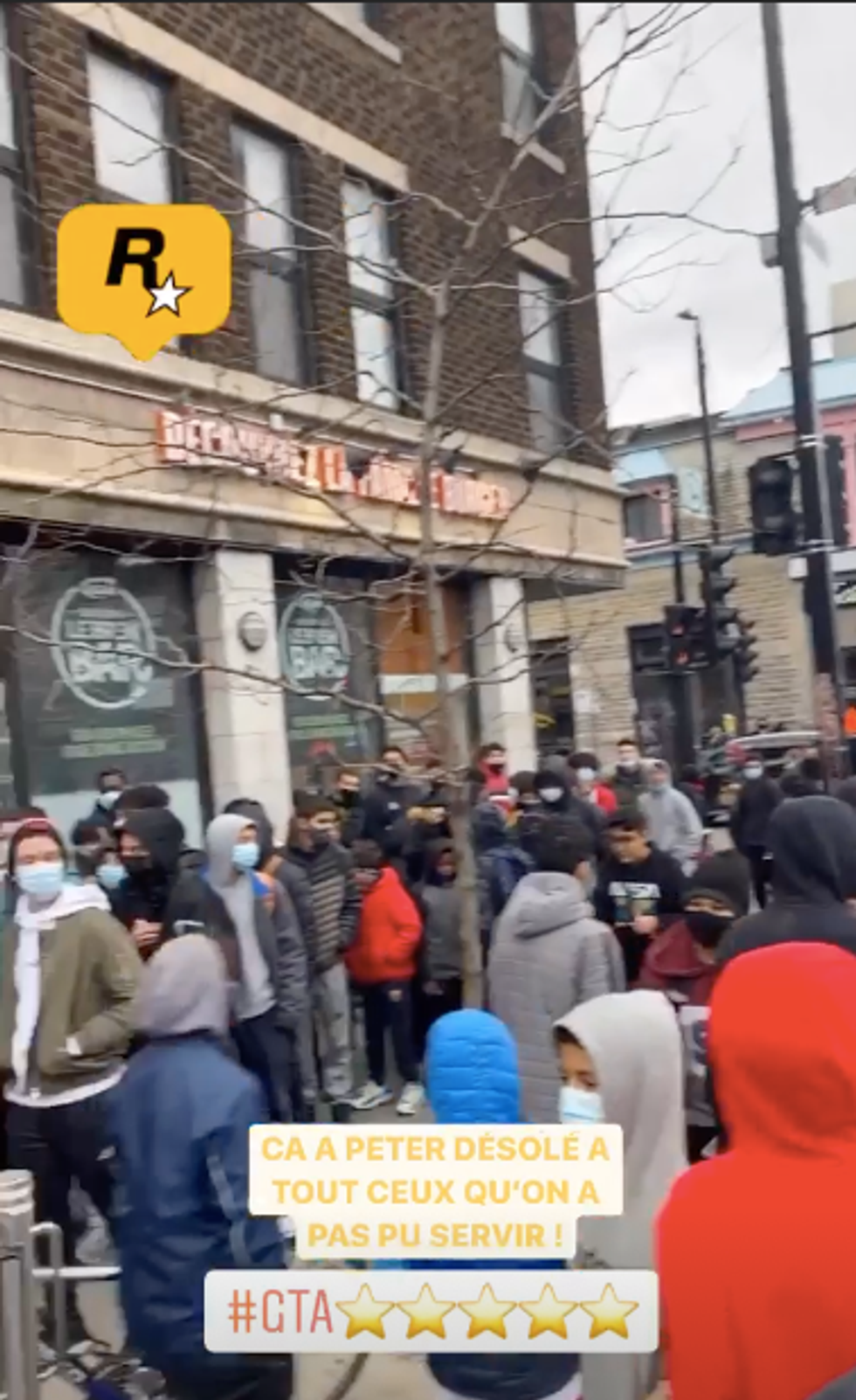
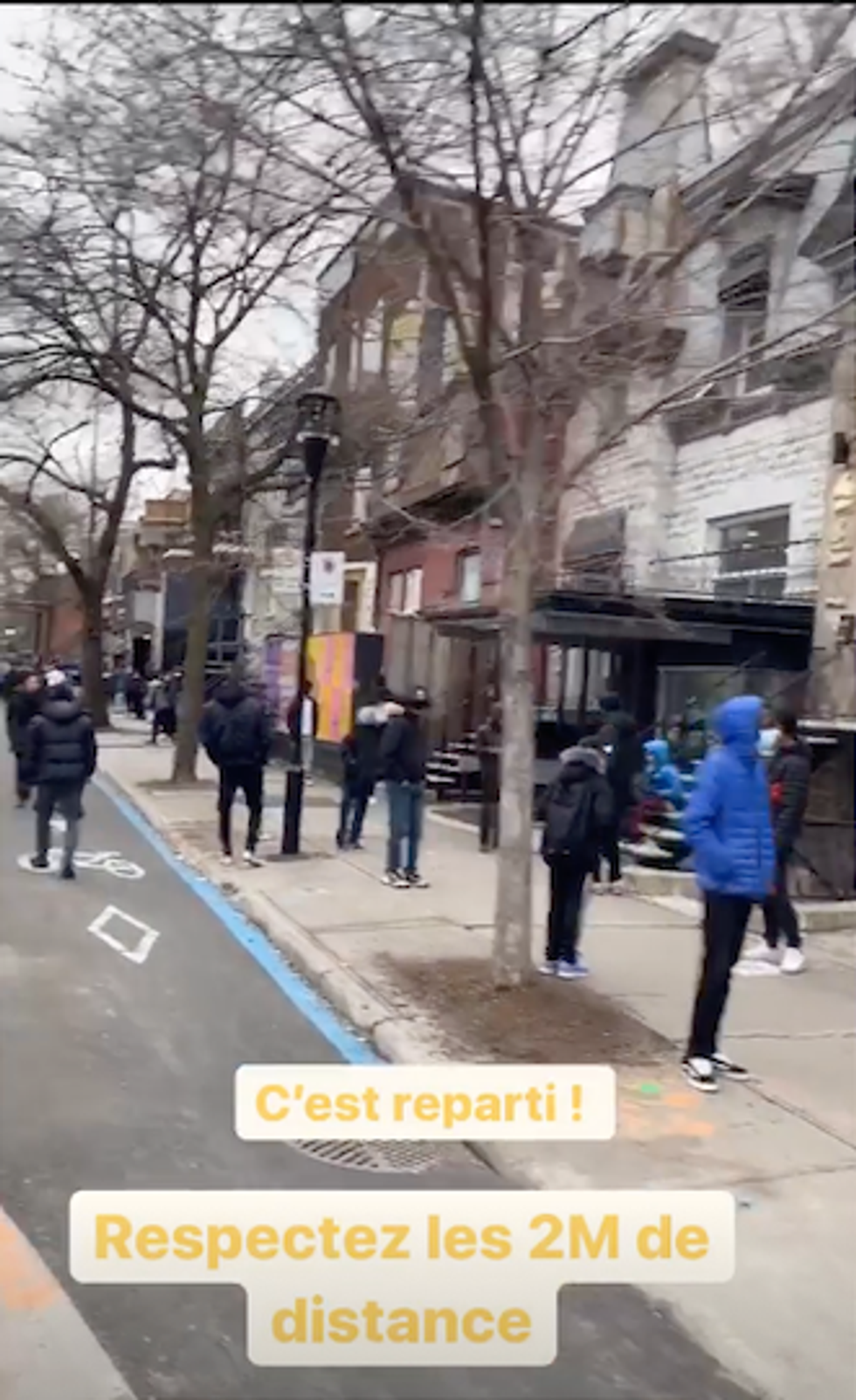


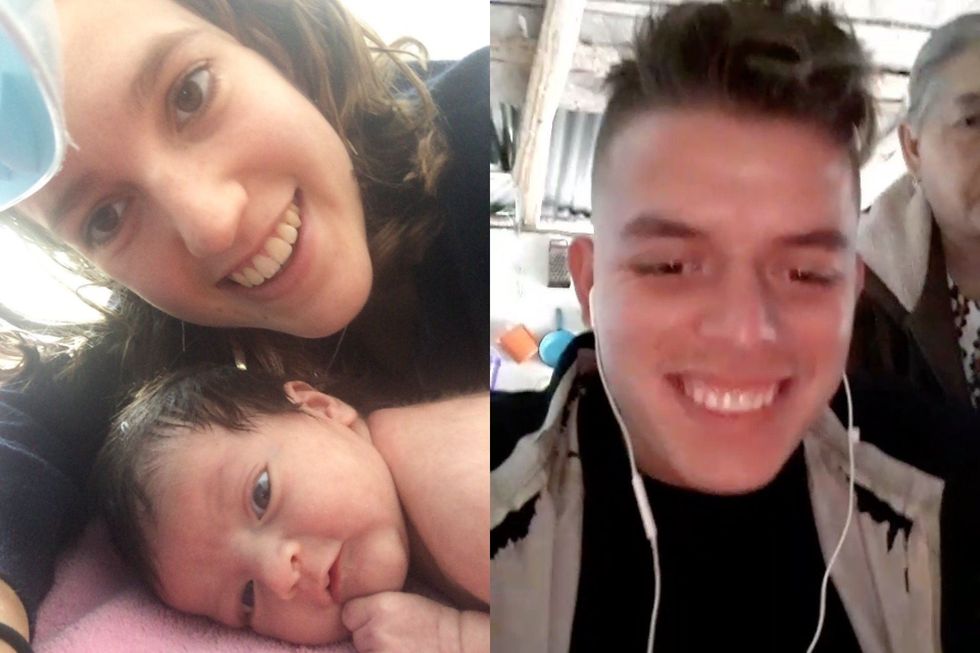

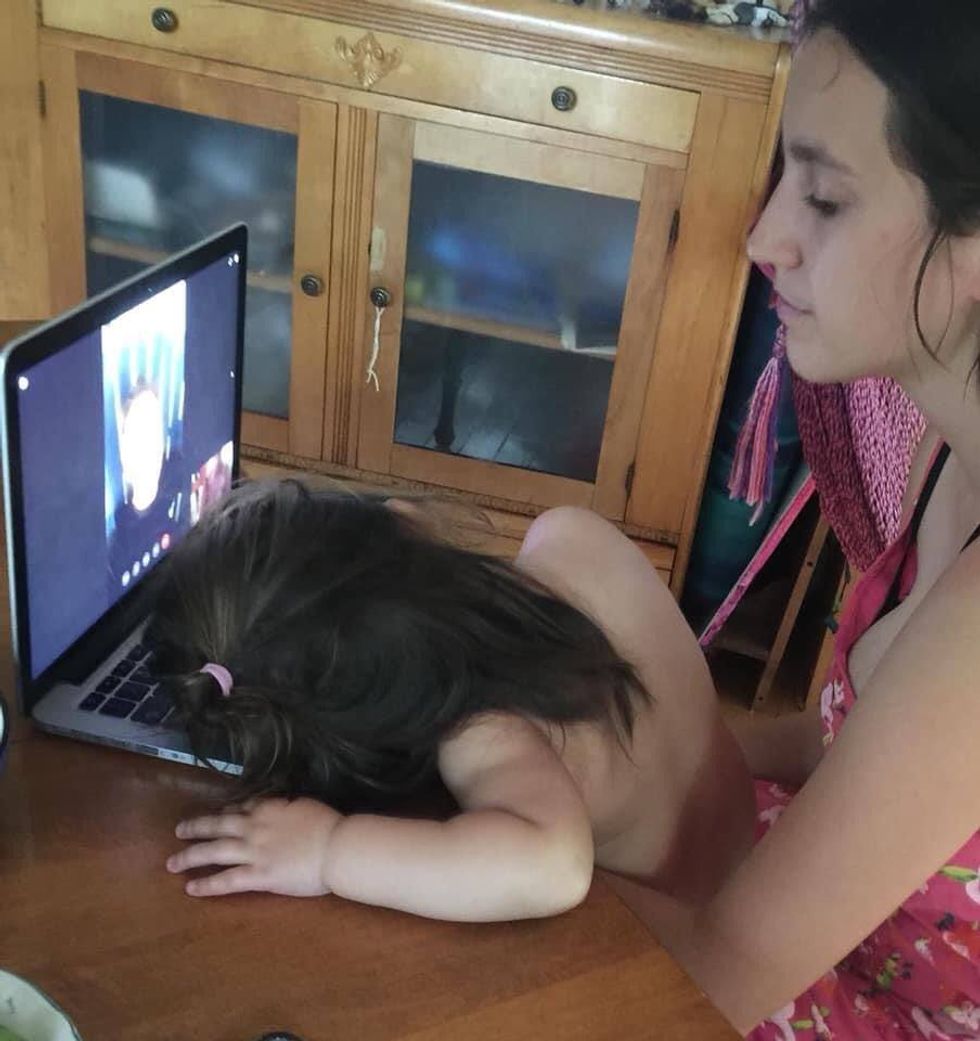


People Are Accusing The SPVM Of Deleting Insta Comments About Fining The Homeless
The Service de police de la Ville de Montreal (SPVM) caused a stir on social media on January 13, when at least three people accused the SPVM Instagram account of deleting comments questioning its treatment of Montreal's homeless population.
Beneath a photo of an SPVM officer with one of the police force's horses, Montrealer Sabrina Prosser pressed the SPVM on why a homeless Montrealer was reportedly issued a $1,550 ticket for breaking Quebec's COVID-19 curfew rules.
Editor's Choice: Legault Responded To Criticism Of Policing Homeless Quebecers During Curfew
“
How dare they try to silence a genuine and non-aggressive question?
Sabrina Prosser
Prosser told MTL Blog she wanted to know what the SPVM was doing to rectify the situation with the city's homeless population during curfew hours.
But she said that a few minutes after posting, her comment was removed.
Prosser then posted a second comment, she said, and encouraged her friends and followers to continue asking the SPVM for details regarding the $1,550 ticket.
Prosser said her follow-up comment, as well as an additional third comment, were also deleted.
Two more commenters, Juliana Dehm and Victoria Rodriguez-Carnevale, told MTL Blog the SPVM deleted their initial comments.
Unlike in Prosser's case, Dehm claimed the SPVM did not intervene in a follow-up comment she posted.
"I guess they realized everyone was spreading the word about what they were doing," she said.
A spokesperson for the SPVM told MTL Blog that its moderators are sometimes required to remove comments on its social media platforms — specifically, when they are off-topic or have been uploaded several times, as per its 'Netiquette' policy.
"The specialized teams of the SPVM [...] work for the well-being of vulnerable people, including those who find themselves in a situation of homelessness, at the time of enforcing curfew measures," the spokesperson said.
"Where possible, the police will also accompany people experiencing homelessness to the appropriate resources so that they can receive the help and support they need."
Prosser said the SPVM's actions contradict its "Netiquette" policy, as her first comment was just posted once and was respectful.
"They are effectively trying to sweep it under the rug, and as a taxpaying citizen, I have an absolute right to question whether or not the SPVM is doing their job properly," she said.
Other Montrealers joined the discussion, asking the SPVM to justify its actions of deleting Prosser's initial comment.
The SPVM — issuing a response in the comments section five days after Prosser began to question its social media management — referred another commenter, Tiger Tchakounté, to its 'Netiquette' policy.
Dehm called the SPVM's response an "excuse," saying that Prosser's initial comments were "neither rude nor vulgar."
Prosser told MTL Blog that she believes the SPVM still needs to be held accountable for its treatment of the city's homeless population.
"If [the SPVM] are going to have that budget, they better be open to criticism and guidance," she said.
"This is not a police state. This is not okay."
As of January 22, there were numerous comments in the thread for this photo questioning the SPVM's practice of ticketing homeless people, and criticizing the SPVM for allegedly deleting comments.